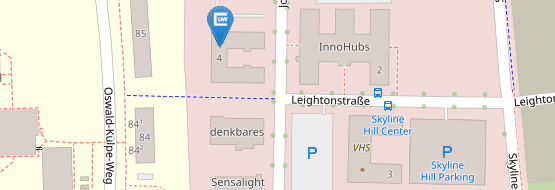Modules: UNIversInternational

Sign up for our UNIversInternational certification programme and complete three interesting modules that will boost your language and intercultural skills.
Demonstrate that you have the language skills it takes to work in an international environment.
The members of our non-academic staff and our international students and employees will not be able to communicate with each other unless they speak a common language. English is the working language of many people at our University, in particular where existing or projected international partnerships are concerned.
Module 1 ‘English Language Skills’ is designed to ensure that the participants pursuing the certificate have English language skills at CEFR (Common European Framework of Reference for Language) B2 level. There are a number of ways how you can achieve the required level of language proficiency or demonstrate that you already have the required language skills.
You can, for example, take one of our English courses (to successfully complete Module 1, you will have to pass our ‘Office Communication in English - Intermediate Course’ or our ‘Office Communication in English - Advanced Course’) or you can demonstrate that you already have the required language skills, e.g. by taking a language test for JMU staff members at the Language Centre (ZfS) or by submitting an (academic) publication that you have written in English.
You are unsure whether we will accept your language certificate? Get in touch! We will be happy to speak to you.
Demonstrate that you are sensitive to cultural differences.
As our University is becoming more and more international, there are more and more contacts between people with different cultural backgrounds. These cultural differences can lead to misunderstandings.
Module 2 ‘Intercultural Skills’ is designed to raise awareness of cultural differences and develop an understanding of how our cultural background influences the way we behave and the way we perceive and interpret the behaviour of others.
To complete module 2, you will be required to take two courses: a basic and an advanced intercultural training course. Click here to find out what courses we currently offer.
Undertake a staff mobility and gain valuable experience abroad.
As a member of our non-academic staff, you liaise with international students, guests and researchers. You welcome them when they arrive.
Module 3 ‘Intercultural Experience’ is designed to give participants an idea of what it is like to be an international visitor. You will undertake a staff mobility at an institution abroad and - if you have completed Modules 1 and 2 already - will get the opportunity to put into practice what you have learned there.
To successfully complete Module 3, you will have to spend a total of at least five working days in another EU country - either consecutive or combining several stays with a duration of at least two days each - and write a reflective report (at least two DIN A4 size pages) about your experience.
You can receive funding for your mobility through the Erasmus+ programme. There are a range of options that can be funded. More detailed information and contacts for advice on funding opportunities under Erasmus+ can be found on the web pages of the Service Centre InterNational Transfer. Below are two examples of what your mobility experience could look like:
- Organise a job shadowing experience yourself and observe a person who is working in a role that is similar to yours at an internationally recognised university in another EU country.
- Attend a staff week that is related to your job duties. You can search for staff weeks on the iMotion website.
Did you know? Together with the Service Centre InterNational Transfer, we hold at least one informative event each year for members of our non-academic staff who are interested in undertaking an international mobility experience. Check our calendar of events.
You still have questions or need help? You already have an idea for your mobility experience and need help putting it into practice? Your circumstances won't allow you to go abroad anytime soon? Get in touch and we will find out which format or combination of formats works best for you. We will find a solution that fits your specific situation!
If you work in Central Administration, please also read our information sheet (available in German only).


